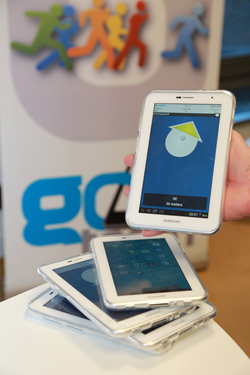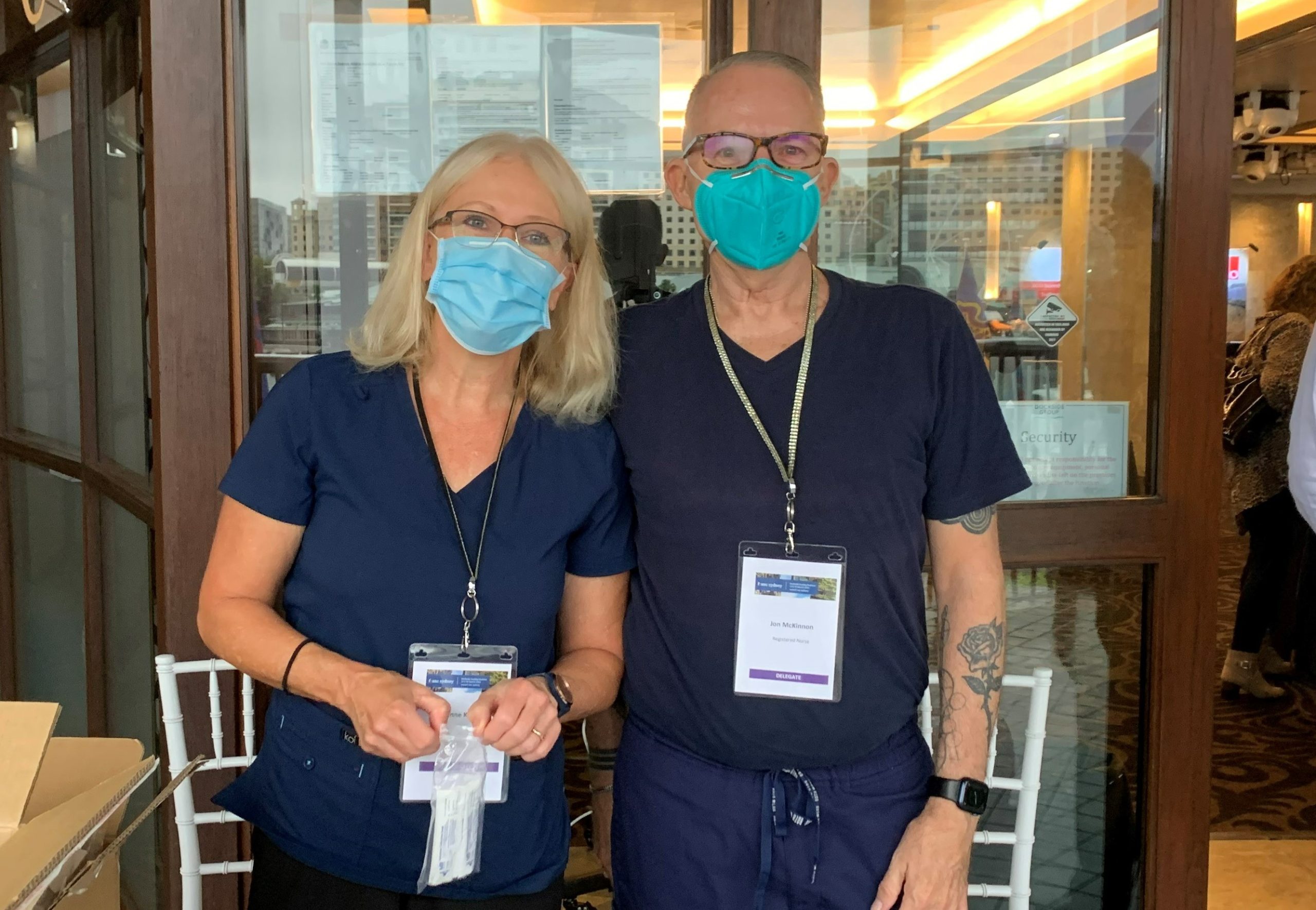The sudden growth in the number of digital apps serving the events industry is similar to the dot com explosion in the late 1990s when many start-up companies went bust, a leading meetings technology consultant says.
 Corbin Ball, speaker, writer and founder of US-based Corbin Ball Associates, says he is currently tracking in excess of 200 apps. “They’re not all going to make it, but the ones that do will change the meetings industry in substantial ways.”
Corbin Ball, speaker, writer and founder of US-based Corbin Ball Associates, says he is currently tracking in excess of 200 apps. “They’re not all going to make it, but the ones that do will change the meetings industry in substantial ways.”
Ball says the only way to negotiate the apps explosion is to take advice on the various software packages available and consider what works for
your company and events.
Big players
“This industry is very well networked, with consultants, magazines, writers and bloggers. There are many people out there who have opinions on this. I always recommend that planners reach out to colleagues who are running similar types of meetings and ask them what they are using.”
Ball says the more important apps have a “Swiss army knife” range of capabilities, “driving some of the biggest technology changes in the history of events”, with costs ranging from “nearly free to tens of thousands of dollars”, and that out of the 200 or so, it is the big players who are driving the market.
“The three largest companies are the best supported ones: QuickMobile, DoubleDutch
and CrowdCompass,” he says. “There are other good ones as well – GenieConnect has just been purchased by a company with deep pockets.
“One of the trends you see now is registration companies either buying event apps or trying to build them themselves. They’re trying to integrate everything. I think that’s what Cvent [CrowdCompass] is trying to do.”
‘Noise’
Ball says prestige is as big a factor as return on investment when it comes to the more expensive apps. “QuickMobile and DoubleDutch go after the high-end corporate market. Their client list includes big technology companies and it’s as much about bragging as it is about image, capabilities, security and all those things that are important to large technology, financial or pharmaceutical companies. Ten thousand dollars is a drop in the bucket compared with what they’re going to be paying to put on the entire event,” he says.
He believes that the future will see consolidation. “There have been some major mergers. Some of the smaller companies that don’t have a sound business model probably won’t survive. But it’s a big pie, there’s a lot of business out there.”
Eric Francois, COO with Topi, a US-based apps company that specialises in events geolocation, networking and “matchmaking with the Facebook friends you don’t have yet”, says that while there
may well be a large number of apps, only 20 to 40 are important. “The rest are just noise”.
White-label apps
“There’s QuickMobile, GenieConnect, EventMobi and DoubleDutch of course, and the smaller players like Pathable, Topi and Visible. After that it’s really random stuff,” he says.
But Francois doesn’t agree with Ball that consolidation of apps into all-encompassing multi-use tools is the way forward. “I don’t know what the big deal is about integration because at the end of the day, they are all different parts,” he says.
Bizzabo claims to be a “one-stop-shop” app for everything from registration and events content to networking.
CrowdCompass boasts personalised apps as “an integrated component of Cvent’s event management platform”, but Francois sees the big business players as more of a threat than a benefit when it comes to diversity.
“DoubleDutch may not be the best at many things but they’re certainly very good at raising money,” he says. “They’ve just picked up US$45 million so they’re going to kill the market. They’re like a super strong, powerful marketing machine. Event planners are very friendly and help each other out, they don’t like the person who’s calling every day for two weeks just to close a deal.”
Francois predicts that in five to 10 years, paper will be a thing of the past at events and that “white label apps” – ones that need to be downloaded from scratch for each event – will fail. His view is that generic apps like Topi, which can stay on a device all-year-round and be activated when needed, will win the day.
Adding experience
Jonah Wolfraim, manager of EventMobi’s marketing team, agrees with Ball that a simple one-stop-shop approach is the way forward. “Attendees are looking for one consistent experience throughout the event rather than jumping from a social media app to an agenda to a live polling site,” he says. “This push for an all-in-one platform is attracting a lot of attention.”
Wolfraim says strategy is important when it comes to making the best of apps. “Expenditure and return on investment all depend on objectives,” he says. “Technology is a strategy, not simply a tool. Planning, agreeing on objectives, setting measurements and benchmarks are all important steps in successfully implementing technology.”
 Darren Kerr, founding partner with the Hong Kong-based FACTOR168 Creative Event Company, says an app is only as good as the thought put into its use and presentation. “That can only be achieved by giving serious thought to why, where, and how the digital dimension of an event will work and add experience value to the attendees, while artfully balancing this with the commercial considerations of the host.”
Darren Kerr, founding partner with the Hong Kong-based FACTOR168 Creative Event Company, says an app is only as good as the thought put into its use and presentation. “That can only be achieved by giving serious thought to why, where, and how the digital dimension of an event will work and add experience value to the attendees, while artfully balancing this with the commercial considerations of the host.”
Despite all the talk about integration and consolidation, Kerr thinks it unlikely an ideal solution will be reached. “There will never be the perfect app for events because it is the human condition to always ask for more or ask for change,” he says.
“A perfect app isn’t possible nor should it be the goal, but an app that has ‘game’, that is well considered, presented and invested in with the needs of the users and host considered in equal parts – that’s possible right now. The almost-perfect app for almost-perfect people.”
Paperwork-free teambuilding
While digital apps are associated with all aspects of organising events, they are also used for team-related and incentive activities.
Team Building Asia, with offices in Hong Kong, Macau, Singapore and Shanghai, offers the tablet-based Go Team app, which replaces the paperwork often used to organise incentive events.
“Everything goes onto a tablet, and all the data is live, done through 3G technology,” says Stuart Harris, the company’s co-founder and director. “So when the teams are out all that information – scores, results and photos – is fed back to us in real time.”
The software, which was developed in Finland, can be used for games, quizzes, incentive events and even orientation programmes.
When in China:
WeChat, Weibo
Adam Charles, SVP, managing director, China, with Jack Morton Worldwide, says Weibo and WeChat can be used to great effect as meetings tools.
“The former provides an excellent platform for news and opinion, while WeChat is the preferred tool every single person who lives in China uses to communicate with their friends and family. WeChat is fantastic for community building and quick sharing of content.
“Brands tend to use Weibo, WeChat or both to bring to their social media strategies to life. Of course, both work well as promotional tools, but the key part they play is community building,” Charles says.
But beware of the “great firewall of China”. This can prevent apps from operating the same functions as they would in other parts of the world.
“I spoke at a conference in Shanghai last year and you couldn’t use the social tools,” says Corbin Ball. “They did have a mobile event app, but you couldn’t use any of the social connectivity tools.
“I’m sure there is going to be a huge market for international meetings in China and I’m sure they’ll be developing their own mobile event apps.”
 “We have done some large events with it, including one in Shanghai for 500 people,” Harris says.
“We have done some large events with it, including one in Shanghai for 500 people,” Harris says.
“It’s all controlled by a central server and we can have multiple events running at the same time. Each team gets a device, they all have 3G network, and are controlled by GPS. They get a map and decide where they’re going. They then select an icon that will then tell them how to get there and what is going to happen at the location.”


